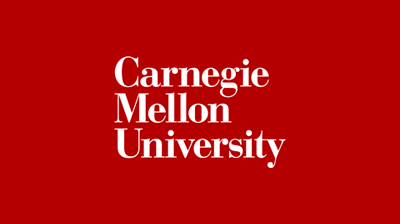The MultiComp Lab is affiliated with the Language Technologies Institute (LTI), which is one of the 8 departments of the CMU School of Computer Science (SCS). Prof. Morency’s primary appointment is also at the Language Technologies Institute. While the majority of MultiComp Lab’s members are from the LTI department, the School of Computer Science is designed to foster multi-disciplinarity by allowing students from any SCS department to be advised by any SCS faculty member. We invite prospective students to take a moment to read the graduate programs from other SCS departments, especially from the Human-Computer Interaction Institute, the Robotics Institute, and the Machine Learning Department. While your research can be advised by any SCS faculty member, the course requirements will change between programs and departments.
You will find in this webpage a series of most frequently asked questions by prospective students who would like to join Carnegie Mellon University and the MultiComp Lab.
Departments in the School of Computer Science (SCS), including the Language Technologies Institute (LTI), separate the admission decisions from the matching process between students and faculty members. In other words, students are accepted at LTI and SCS based on the merit of their application material and past research. The matching with a specific faculty adviser happens later, usually in early Fall semester. This allows students to take the time to talk with faculty members before making decisions on who they would like to work with. While MultiComp Lab regularly accept new members each year from either the Master or PhD programs, prospective students should not base their application decision solely on this fact.
To apply for one of the Master or PhD programs at the Language Technologies Institute, please visit this website:
http://lti.cs.cmu.edu/apply-lti
The School of Computer Science is designed to foster multi-disciplinarity by allowing students from any SCS department to be advised by any SCS faculty member. We invite prospective students to take a moment to read the graduate programs from other SCS departments, especially from the Human-Computer Interaction Institute, the Robotics Institute and the Machine Learning Department. While your research can be advised by any SCS faculty member, the course requirements will change between programs and departments.
The Language Technologies Institute has many researchers and faculty members working on multimodal interaction and computation (in alphabetical order):
- Justine Cassell (Multimodal communication analysis and generation)
- Maxine Eskenazi (Multimodal detection of distraction)
- Alex Hauptmann (Large-scale multimedia content analysis)
- Florian Metze (Speech and Multimedia Analysis)
- Bhiksha Raj (Multimodal interaction and speech processing)
- Alex Rudnicky (Multimodal dialogue modeling)
- Alex Waibel (Multimodal computational and interaction)
Accepted PhD students at the Language Technologies Institute (LTI) are offered complete financial support as part of their offer letter. For Master students, the funding support depends on which Master program you are applying. We suggest that you read carefully the description of each program before applying.
While we do not have the time to read and comment on all your admission material, here are some suggestions when preparing your application:
- Research statement: take the time to outline the vision of what you would like to achieve in the next 5 or 6 years of your PhD. The research statement is an opportunity to go beyond your CV and explain what motivates you to do graduate research. You can also use the research statement to explain the unique contributions of your part research (in context with your overall research vision).
- Letters for recommendation: It is important to select people who know you well. The admission committee will read the letters to better understand your previous research achievements as well as knowing better who you are as a student and as a researcher. A little advice: always give an easy option for your potential recommenders to say no, in case they don’t feel comfortable writing the letter (e.g., they may not know your research well enough).
- Curriculum Vitae: Do not underestimate the importance of a well-organized and documented CV. Your CV should highlight your main previous achievements. It is good to include a sentence or two to explain the value of a specific item in your CV. For example, instead of simply listing the fellowships you previously received, also include a sentence to state the statistics surrounding this fellowship.
This is a very good question to ask before you decide to join a research group. The best way to get feedback is usually to contact the students and postdocs of the Faculty. Also, you should remember that CMU’s Language Technologies Institute (and many departments in the School of Computer Sciences) give extra flexibility to students by finalizing the matches between students and Faculty members only during the beginning of the Fall semester. This allows you to meet Faculty members in person before choosing your advisor.



